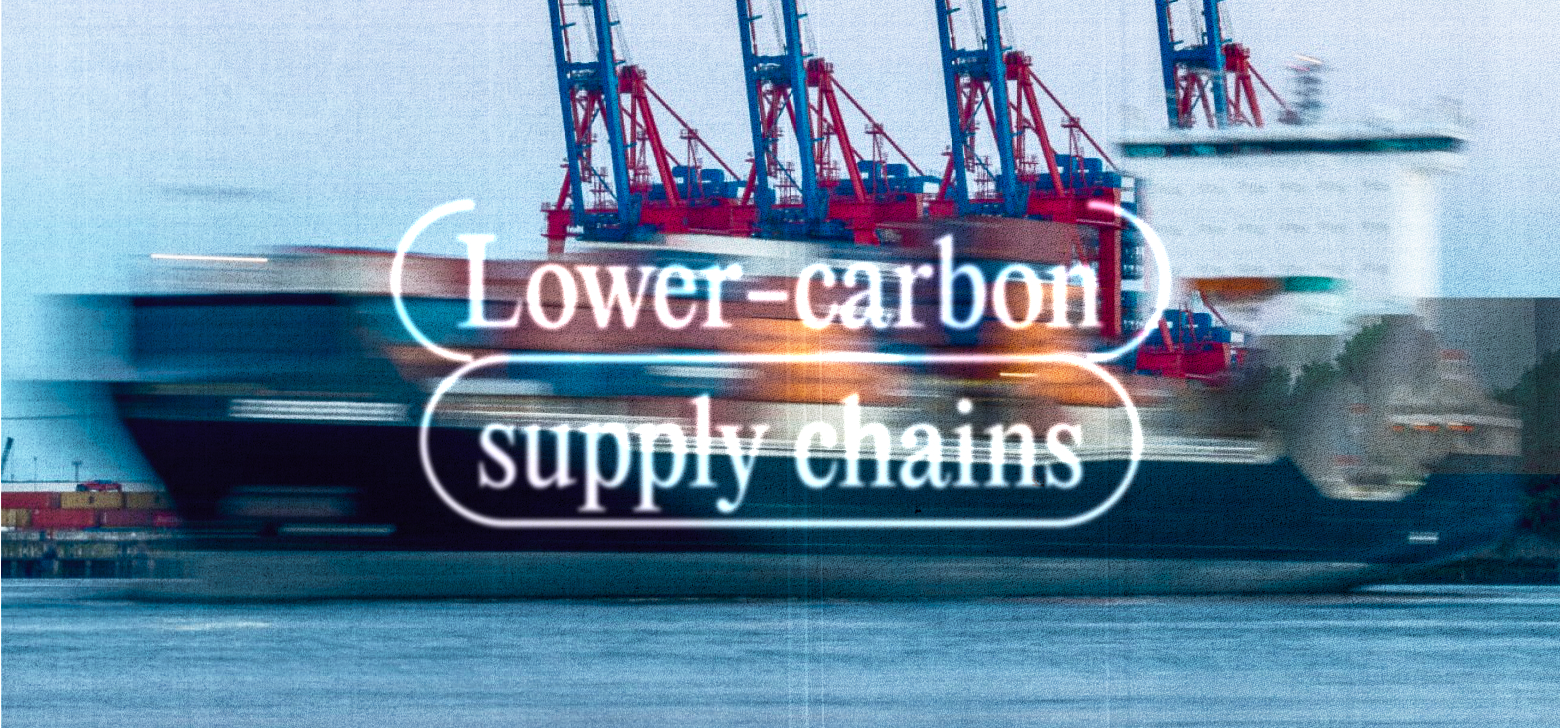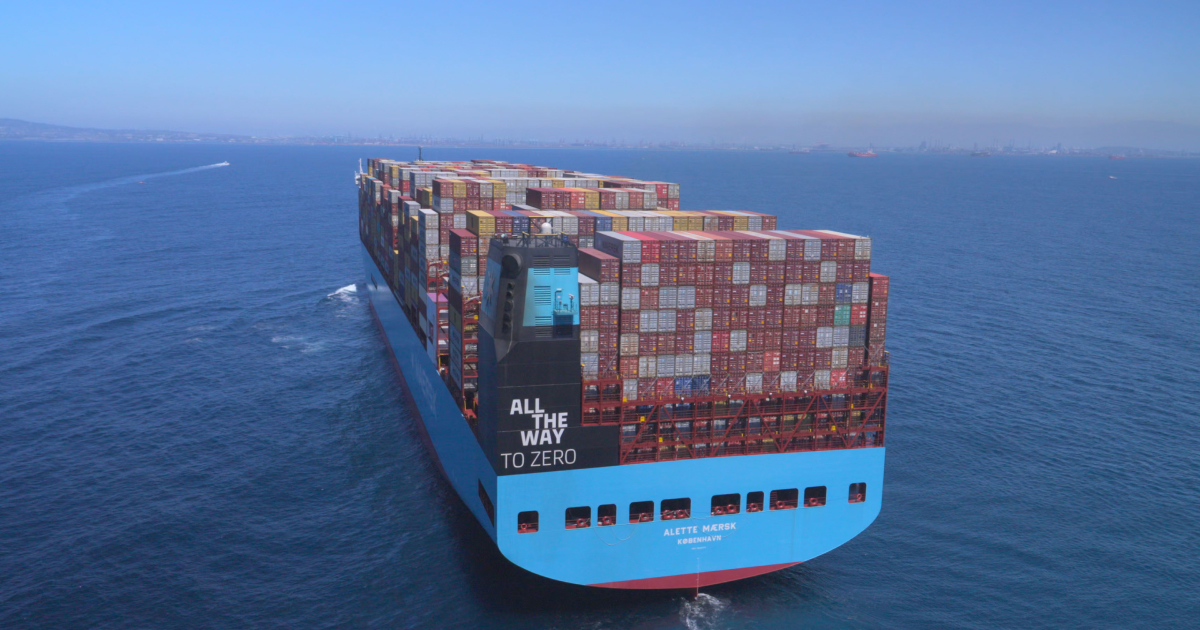By the numbers:
- 683,000 tons: the amount of carbon emissions cut in 2023
- 25%: the percentage of Maersk's container volume that will be transported using low-carbon alternative fuels by 2030
Over 100,000 container vessels traverse our seas, moving 11 billion tons of goods around the globe each year and emitting more than one million tons of carbon dioxide. Shipping produces 3% of global emissions annually and it’s one of the more complicated industries to rebuild renewably.
But Maersk is leading the decarbonization of ocean shipping. The company has a plan to reach net-zero carbon emissions by 2040 that’s been validated by the Science Based Targets Initiative. Its first focus area is its greatest source of emissions: the fuel that powers its vessels, which produce 95% of Maersk’s Scope 1 emissions.
To reduce its and its customers’ carbon footprints, Maersk’s fuel of choice is green methanol, variants of which can be produced from biomass or renewable energy sources such as wind or solar power. In 2023, Maersk successfully piloted the Laura Maersk, the world’s first fully methanol-powered container vessel, on a 13,000-mile maiden voyage from South Korea to Denmark. The trip proved that the fuel is a viable path for Maersk to meet its goals and the company has engaged in strategic partnerships across the globe to scale green methanol production by 2025.




